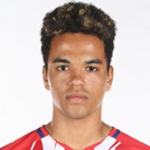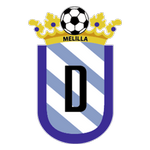| Coach | NA |
| Venue | Estadio Álvarez Claro |
Melilla predictions
Predictions for Melilla: See upcoming and historic predictions for Melilla below.
Disclaimer: Past performance does not guarantee future results. Betting involves risk; only wager what you can afford to lose. Always gamble responsibly.
Melilla Players
| Players | Position |
|---|---|

Alejandro Martín Masogo
Spain
|
Midfielder |

Daniel Jesús Martín Gil
Spain
|
Defender |
Melilla latest transfers
| Date | Player | From | To | Price |
|---|---|---|---|---|
| 2021-01-28 | Iker Hernández | Royal Pari | Melilla | € Free |
| 2019-02-06 | Y. Qasmi | Melilla | Elche | € 300K |
| 2019-01-04 | Héber Pena | Real Murcia | Melilla | € Free |
| 2017-01-30 | David Agudo | Extremadura | Melilla | € Free |
About Melilla
Club Deportivo Melilla, commonly known as Melilla, is a Spanish football club based in the autonomous city of Melilla, located on the north coast of Africa. Founded in 1943, the club has a rich history spanning over seven decades and is one of the most prominent teams from the region.
Melilla plays its home games at the Estadio Municipal Álvarez Claro, a venue with a seating capacity of around 12,000 spectators. The stadium, which was inaugurated in 1945, has been the club's fortress, witnessing numerous memorable moments and victories.
The club's primary colors are blue and white, reflecting the city's maritime heritage. The team's emblem, a shield divided into two halves, features a football and the city's coat of arms, symbolizing the club's deep-rooted connection with the city of Melilla.
Throughout its history, Melilla has primarily competed in the Segunda División B, the third tier of Spanish football. The club has had several attempts to reach the Segunda División, Spain's second-highest football league, but has fallen short in the final stages of the promotion playoffs.
Despite these challenges, Melilla has consistently demonstrated resilience and competitiveness, often punching above its weight against more resourceful teams. The club has produced several talented players who have gone on to make their mark in Spanish football.
Melilla's most significant achievement came in the 2018-2019 season when they reached the last 32 of the Copa del Rey, Spain's premier domestic cup competition. They faced Real Madrid, one of the world's most successful clubs, in a two-legged tie. Despite losing both matches, the experience was a historic milestone for the club, bringing national and international attention to Melilla.
Off the pitch, Melilla is deeply ingrained in the local community, playing a crucial role in promoting football in the region. The club runs several youth teams, providing a platform for young footballers to hone their skills and pursue their dreams of becoming professional footballers.
Melilla's journey, filled with ups and downs, embodies the spirit of football in its purest form. The club's passion, resilience, and commitment to its community continue to inspire football fans in Melilla and beyond. Despite the challenges, Melilla remains a beacon of hope for football in the region, symbolizing the power of the sport to unite and inspire people.
















